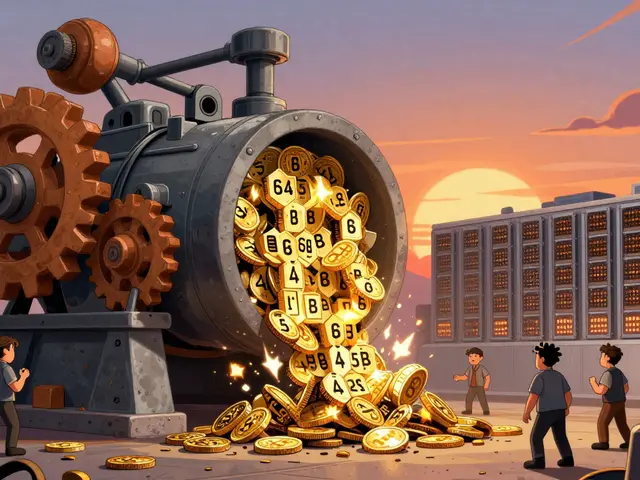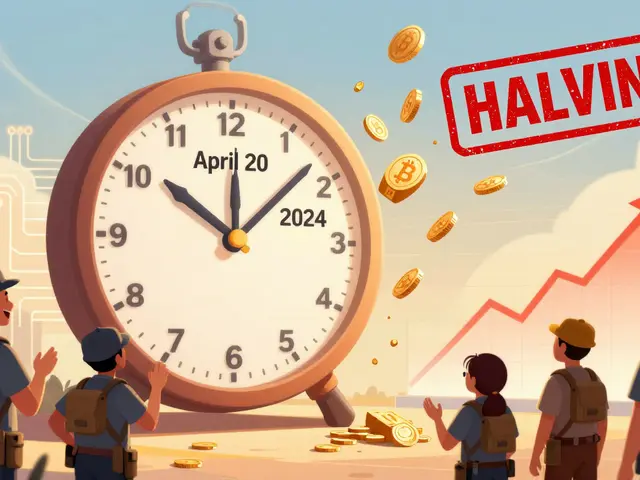Crypto TDS India: What It Is, Why It Matters, and What’s Really Happening
When you trade crypto in India, Crypto TDS India, a tax deduction at source rule that applies to cryptocurrency transactions. Also known as TDS on crypto, it means 1% of every sale or transfer gets withheld by the exchange and sent to the government—no matter if you made a profit or not. This isn’t a suggestion. It’s law. Since July 2022, every Indian crypto exchange, from ZebPay to CoinDCX, has been required to collect this tax automatically. If you’ve ever sold Bitcoin, swapped Ethereum for Solana, or claimed an airdrop on a local platform, TDS already touched your wallet.
This rule doesn’t just apply to big trades. Even a $50 swap counts. And it doesn’t care if you’re a beginner or a pro. The moment you transfer crypto to another wallet or sell it for INR, TDS kicks in. That’s why you see smaller balances than expected after a trade. It’s not a glitch—it’s the government taking its cut upfront. But here’s the catch: this 1% isn’t your final tax bill. It’s just an advance payment. You still need to report all your crypto gains on your income tax return, and you can use the TDS amount as a credit to reduce what you owe. If you lost money all year, you might even get some of that 1% back.
Crypto TDS India also connects to other big topics like cryptocurrency taxation, how the Indian government tracks digital asset movements for tax compliance. Also known as crypto income reporting, it’s the bigger system TDS feeds into. The government doesn’t just want to collect money—it wants visibility. That’s why exchanges now report user data to the Income Tax Department. If you’re doing airdrops like the KALATA or XCV drops mentioned in our posts, you still need to track their value when you receive them. Those are taxable events too. And if you inherited crypto or gifted it to a friend, you’re now part of a new reporting system starting in 2025.
What’s not clear yet? How TDS works with peer-to-peer trades, or whether decentralized exchanges like Uniswap or PancakeSwap are required to collect it. Right now, only regulated Indian platforms are enforcing it. But the rules are tightening. If you’re holding crypto on foreign exchanges like Binance or Kraken, you’re still legally required to report those transactions. The tax department has tools to track on-chain activity, and they’re using them.
So what does this mean for you? If you’re trading crypto in India, you’re not just buying and selling—you’re managing a tax obligation every time you move assets. You need to keep records of every transaction: date, amount, value in INR, and whether TDS was deducted. No more guessing. No more ignoring. And don’t rely on apps that auto-calculate your taxes—they don’t always catch TDS correctly.
Below, you’ll find real guides from people who’ve been through this. We’ve got posts on how airdrops like KALATA and MCASH affect your tax bill, how privacy coins are treated under Indian law, and what happens when you sell crypto after holding it for years. Some of these posts warn about scams pretending to be tax helpers. Others show you how to file your crypto returns without paying an accountant. This isn’t theory. It’s what’s happening right now in your wallet. Read ahead—your next trade might depend on it.
India's 30% Crypto Tax: What Bitcoin Traders Need to Know in 2025
India's 30% crypto tax applies to all Bitcoin and crypto gains with no loss offsetting, 1% TDS, and 18% GST on fees. Traders must track every transaction or risk penalties. Here's what you need to know in 2025.





